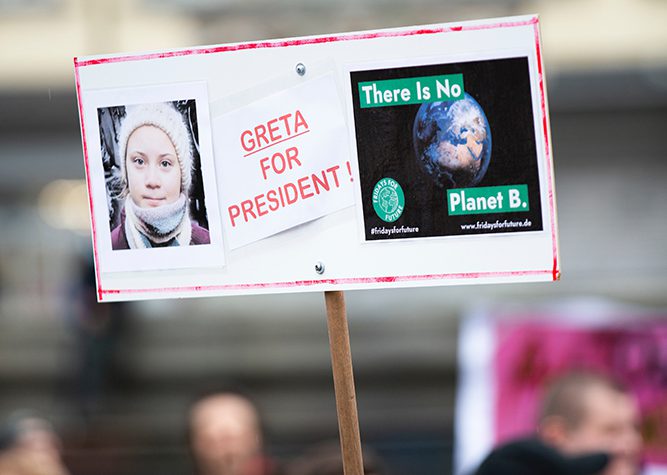
On Jan. 3, the United States assassinated, with a drone strike, Iranian Maj. Gen. Qasem Soleimani, who had coordinated Iranian proxy militias in the region. It was an escalation of the U.S.-Iran conflict, to which Iran responded with missile attacks on Iraqi bases hosting U.S. soldiers; there were no casualties. Soon after the drone strike, Michael Doran, a Hudson Institute scholar, declared in an op-ed in the New York Times that the world was now a better place, suggested that celebrations were occurring throughout the Middle East ignoring Iranian popular outrage over the attack and argued that this show of American resolve could produce a seismic diplomatic shift in the region. Regional allies like Israel and Saudi Arabia would breathe easier, and the assassination would instill in the protesters in Iran, Lebanon and, especially, Iraq, the hope that they will one day wrest control of their governments from the talons of the Islamic Republic. No talk of the risks of a protracted, bloody conflict.
In January 2003, the very same Doran, then an assistant professor at Princeton (he later served in the administration of President George W. Bush), made similarly rosy predictions in Foreign Affairs about the imminent attack on Iraq. The war, he said, would belatedly demonstrate strength and resolve: It would sober up onlookers with oppositionist ambitions of their own, making them recalculate the odds of defying a power that has demonstrated its intention to remain a permanent and dynamic regional player. Of course, the Iraq invasion is not remembered as a show of might that quelled unrest in the region; it was a brutal engagement that has not truly ended. It certainly did not lead Iran to pick one example to rethink its opposition to American intervention.
Doran isnt the only one making claims that eerily echo those of 2002 and 2003. The presidential rhetoric about the two conflicts has been notably similar. In his 2003 State of the Union speech, Bush laid the groundwork for the invasion of Iraq: Today, the gravest danger in the war on terror, the gravest danger facing America and the world, is outlaw regimes that seek and possess nuclear, chemical and biological weapons. On Wednesday, in a news conference in which he signaled that the United States would not escalate the fight, President Trump said: Iran has been the leading sponsor of terrorism, and their pursuit of nuclear weapons threatens the civilized world. We will never let that happen. Invoking the threat of nuclear weapons has a way of short-circuiting opposition to military strikes and assassinations.
Trump called Irans bluff. And he won.
In 2002-2003, the reasons for the invasion were ever-changing. Sometimes the war was framed as punishment for the Hussein governments past actions. A 2003 document from the State Departments Bureau of Public Affairs explained that the U.S. goal was to defeat a regime that developed and used weapons of mass destruction, that harbored and supported terrorists, committed outrageous human rights abuses, and defied the just demands of the United Nations and the world. At other times, the war was described as a preemptive action to stop a future attack. As a National Security Strategy document published in September 2002 argued: Our enemies have openly declared that they are seeking weapons of mass destruction, and evidence indicates that they are doing so with determination. … America will act against such emerging threats before they are fully formed. Many analysts, of course, claimed that the WMDs already existed, hidden from United Nations inspectors.
After we learned that there were no WMDs in Iraq, the administration moved its focus to an alternate justification one it had also floated before the war. It was about rescuing the oppressed Iraqi people. In March 2003, Vice President Richard B. Cheney notoriously made that case on Meet the Press: My belief is, we will, in fact, be greeted as liberators. (The Trump administration has also suggested that the Iranian people would welcome liberation through American military action with Secretary of State Mike Pompeo even telling CNN that Iranians would view the Soleimani strike in that light: We have every expectation that people not only in Iraq, but in Iran, will view the American action last night as giving them freedom.)
The stated rationale for killing Soleimani also alternated uncertainly between preemption and retribution. At first, Defense Secretary Mark T. Esper said in a statement that Soleimani was actively developing plans to attack American diplomats and service members in Iraq and throughout the region. Sen. Lindsey Graham (R-S.C.) echoed that argument on Twitter: This was not an act of revenge for what he had done in the past. This was a preemptive, defensive strike planned to take out the organizer of attacks yet to come. Pompeo referred to imminent threats to American lives. By Jan. 5, Pompeo was arguing that exactly how imminent the threat was was not something thats relevant. Two days later, Esper was fending off persistent questions about the threat claims by arguing that, as a terrorist, Soleimanis time was due.
Im a U.S. citizen. My family was detained at the border because were from Iran.
In what truly seemed like a throwback to circa-2003 arguments, Vice President Pence even wrote that Soleimani had assisted in the clandestine travel to Afghanistan of 10 of the 12 terrorists who carried out the September 11 terrorist attacks in the United States. Aside from Pences mistake on the number of terrorists who executed 9/11 (there were 19), there was no empirical support for the claim. The 9/11 Commission, FactCheck.org noted, said that it found no evidence that Iran or Hezbollah the Iranian-supported militia group was aware of the planning for what later became the 9/11 attack.
Perhaps inevitably, Trump supporters have attacked the patriotism of anyone who suggests that igniting a new war in the Middle East would be a bad idea. Nikki Haley, a former governor of South Carolina and former ambassador to the United Nations, said Monday that the only people mourning the loss of Soleimani are our Democrat leadership and our Democrat presidential candidates. No one else in the world. Equating opposition to the Iraq War to support for Saddam Hussein or dislike of the United States was an all-too-common rhetorical tactic two decades ago.
Beyond the similarities in justification for the conflicts, there are similarities in strategies by which I mean the absence of strategy. That the Bush administration had not thought through the implications of toppling the Hussein regime became clear as the occupation stretched on for months, then years, and it is painfully evident in retrospect.
The incoherence of the Trump administrations strategy regarding Iran, too, is manifest. In his news conference Wednesday, the president pulled back from war but also condemned the regime and embraced harsh sanctions, offering no path toward a diplomatic settlement.
In 2003, the machinery of pro-war rhetoric set the United States on a course that led to the deaths of thousands of Americans and countless Iraqis. In 2020, we ought to be deeply suspicious when we hear hawkish arguments that trace the same dubious patterns.
Correction: This article originally described Nikki Haley as a former governor of North Carolina. She is a former governor of South Carolina.
Twitter: @lyzl
Read more from Outlook:
For Trump, foreign relationships arent about strategy. Theyre about cash.
We have no idea what were doing in Iraq. We didnt before we killed Soleimani.
Democrats say they wont raise middle-class taxes. But they should.
Follow our updates on Facebook and Twitter.





More Stories
“Nobody is the reason for my death. My family is having to bear a lot of expenses because of me. I am a burden to them, my education is a burden to them….” A day after she wrote this note, Aishwarya Reddy, a student at Lady Shri Ram College for Women in Delhi…
Tom Brady’s arrival had the Buccaneers dreaming of an NFC South title, but the Saints showed the QB and his team they’re a far from being a contender.
Barnaby Joyce claims he told Malcolm Turnbull ‘others’ were having affairs